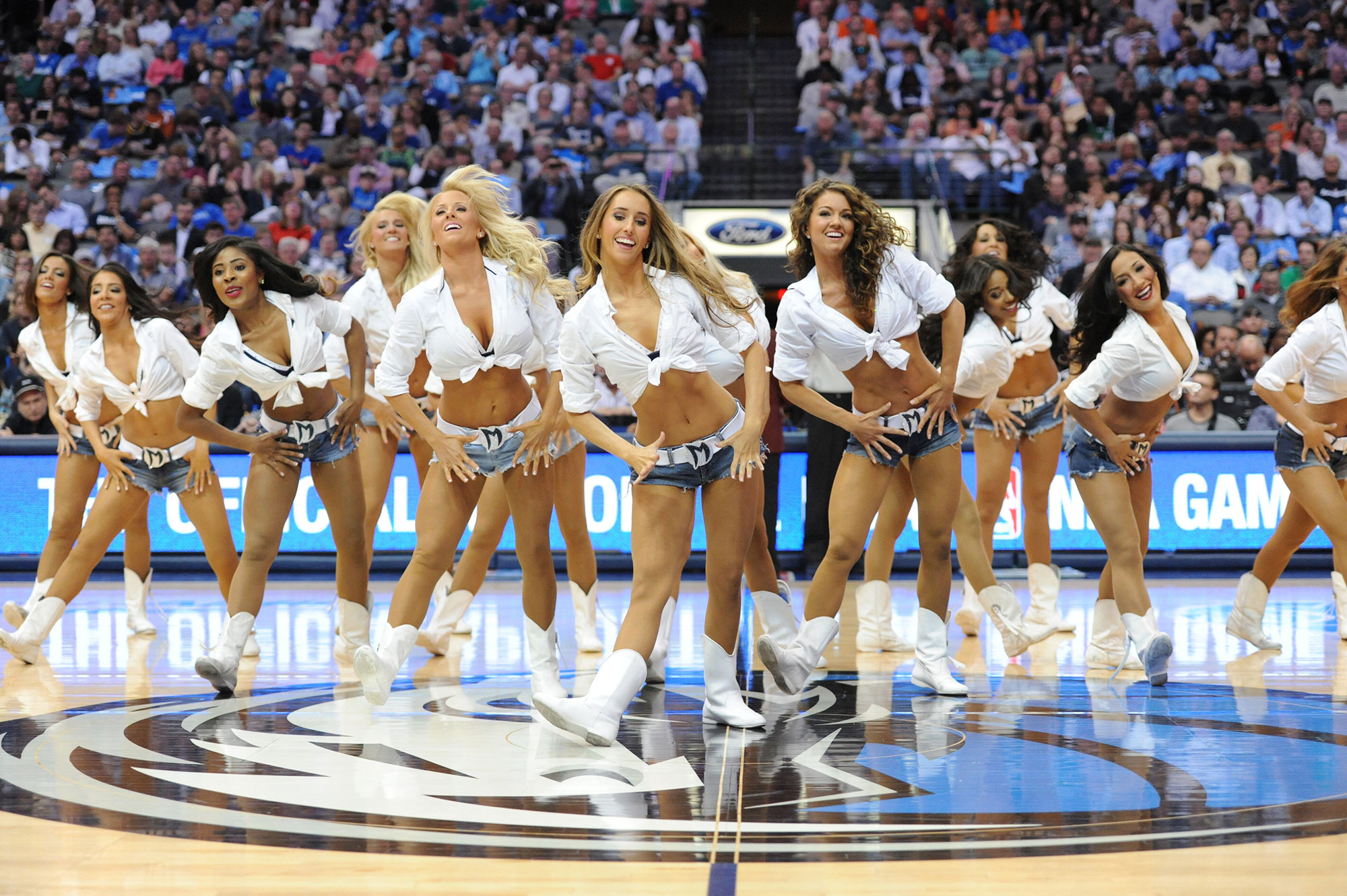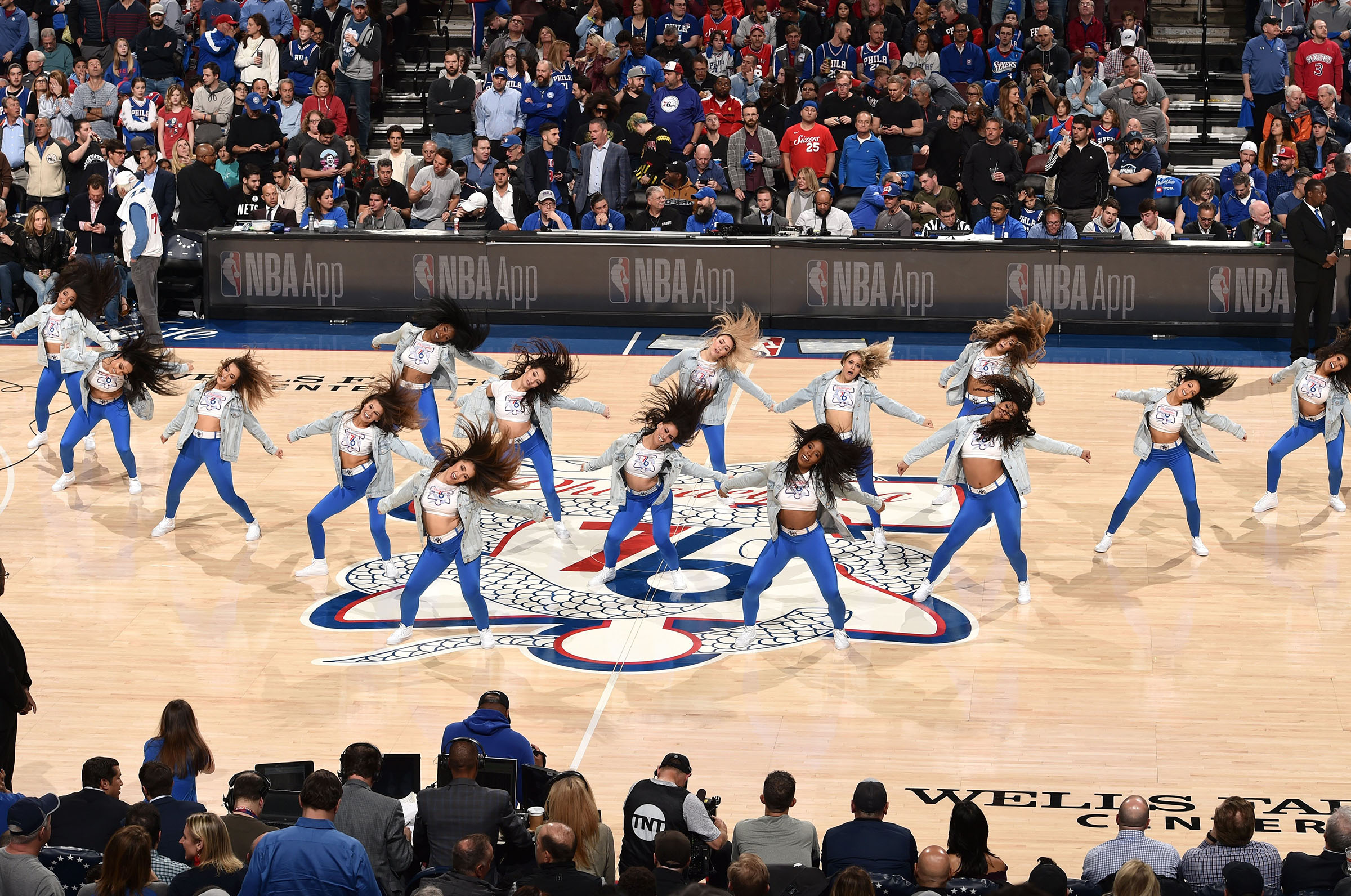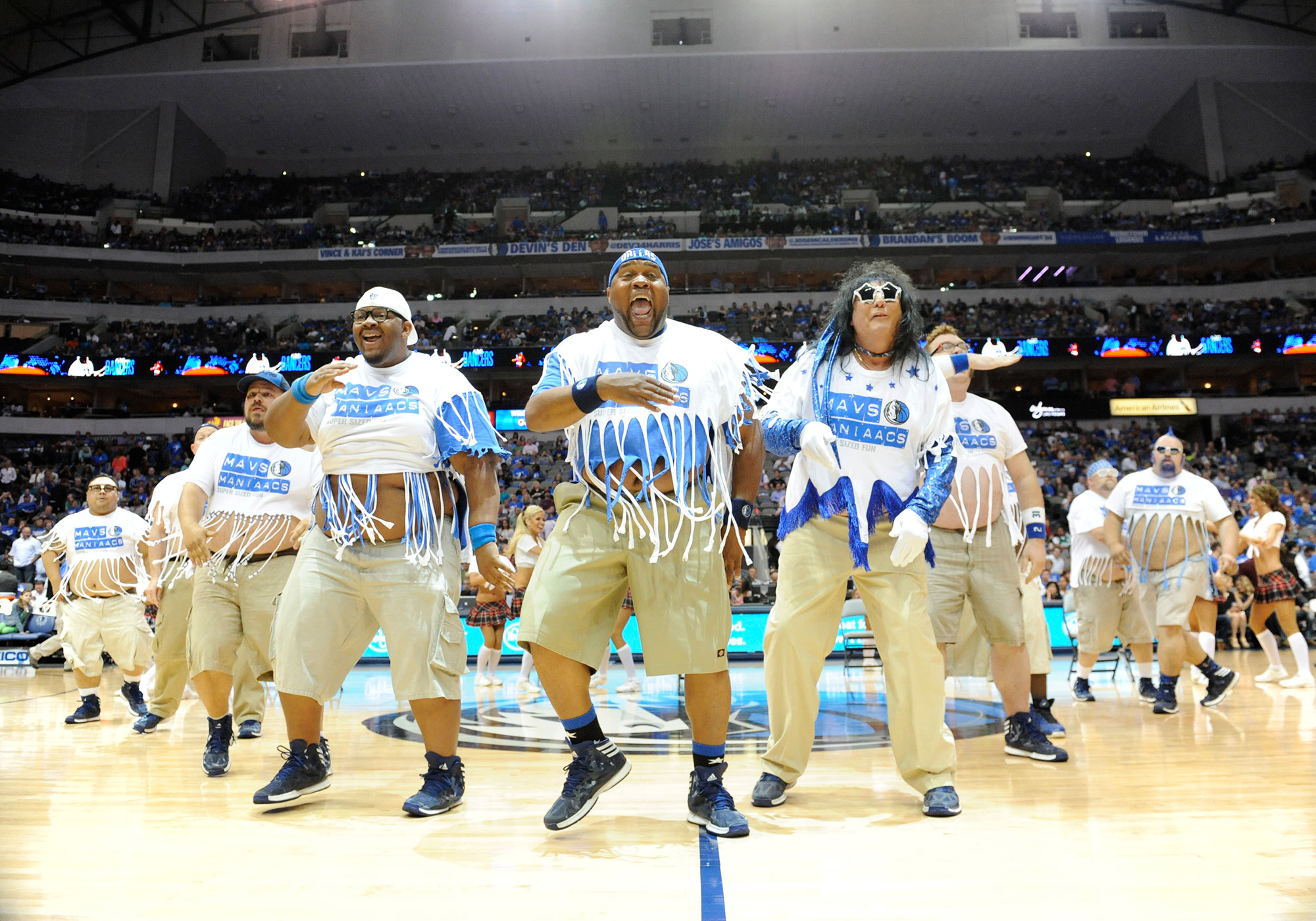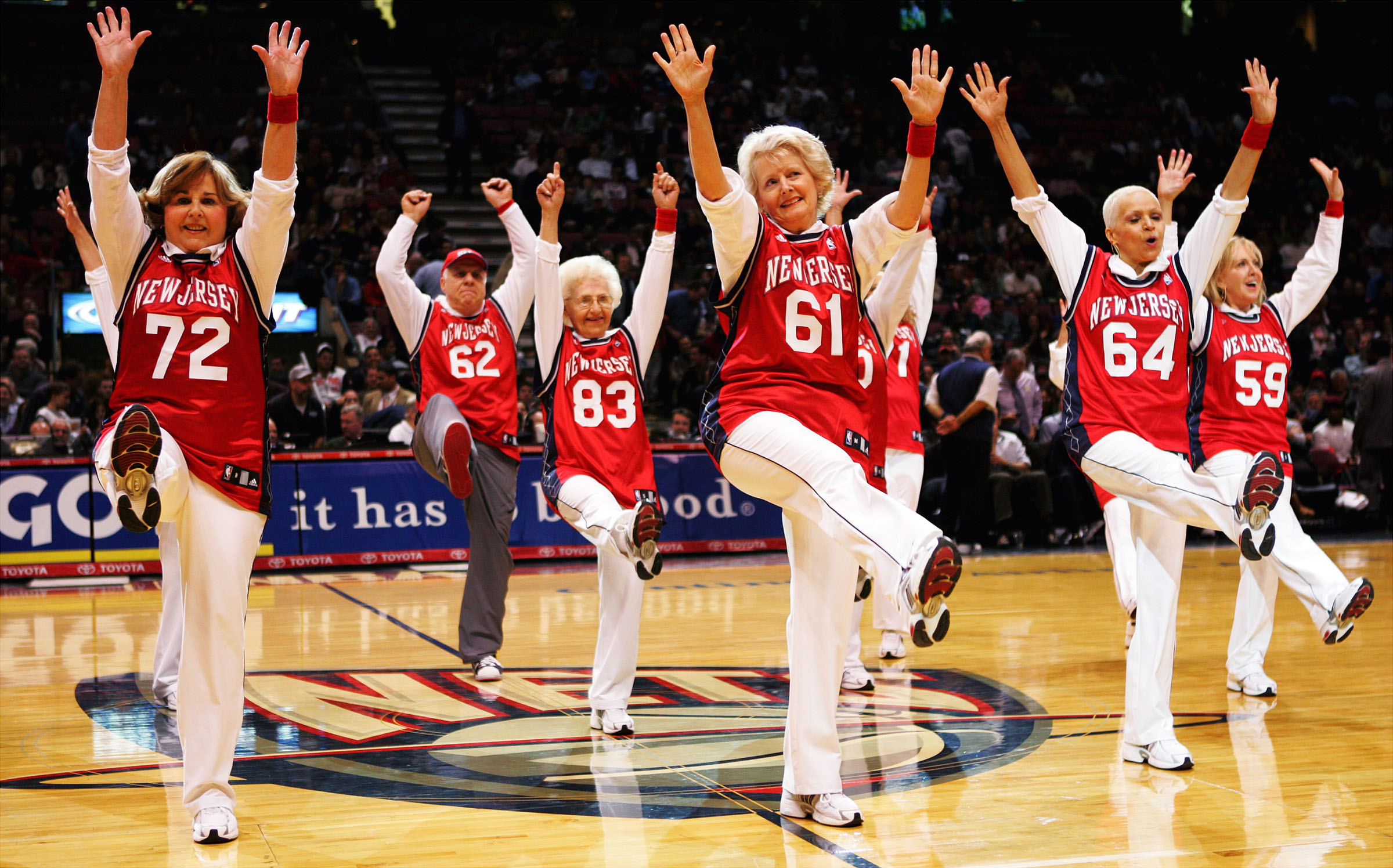
On May 15, an executive with the Sacramento Kings told 48 female contract employees on a conference call that the team would be “evolving” their dance squad, and the women’s contracts would end June 30.
The 48 women made up the official Kings Dancers, the elderly dance team The Classics, and the dance team for the G-League affiliate, the Stockton Kings. The Breakers, a break-dancing team made up of seven male dancers, were not on the call, nor were the co-ed entertainment teams: The Dunking Ushers, Drumline, 91Sticks, and the Sacramento Kings Street Team.
According to two women who were on the call, the executive told them that the Kings were moving in a “more inclusive” direction and would eliminate the three all-female teams, replacing the Kings Dancer and The Classics with a co-ed hip-hop team called the 916 Crew, and replacing the Stockton Kings dancers with a co-ed multi-discipline street team called 209 Hype. The women were encouraged to try out, but were not guaranteed a spot on the new teams—the same process required of them each season. One member of The Classics joked during the call, “I think I can hip, but I don’t think I can hop.”
Kellie Jackson and Mariah Palmiter, both Kings Dancers since 2016, were on the 30-minute call. Palmiter asked if the April hiring of the new Kings head coach, Luke Walton, had anything to do with eliminating the all-female dance teams. Just a few weeks earlier, former Spectrum SportsNet reporter Kelli Tennant had filed a civil lawsuit against Walton accusing him of sexually assaulting her in a hotel room in 2014. Walton has categorically denied the allegations.
Palmiter found the timing suspicious, wondering if the organization was worried about showcasing young female dancers while dealing with the accusations against Walton. But she says when she asked this question, she was told, “We’d like to keep this a productive call.”
A Kings spokesperson told TIME: “[The decision to evolve the dance teams] was discussed internally for months and was finalized before the end of season.”
In the past 14 months, eight of the 30 NBA teams have replaced their all-female dance teams with co-ed groups. It’s a trend that some dancers say reflects a fraught societal response to the #MeToo movement: If there’s any chance you could be accused of sexism, just distance yourself from women. Others wonder if franchises are eliminating all-female squads because of prior pushes for better pay and working conditions. NBA teams insist they are merely diversifying their entertainment squads, but dancers, many of whom have trained and aspired to be on these teams for years, say the decision to replace all-female teams is itself sexist, reducing the number of good career opportunities for women.
NBA dancers have been part of the league for more than 30 years, and while their positions are typically part-time, many dancers say they spend more than 20 hours per week learning, practicing, and performing the dances at games. They also represent the team publicly, volunteering in the community and appearing at events to dance or sign autographs.
Palmiter says the decision feels like “a slap in the face.”
“We were always fighting our own organization to get the credit, attention, and respect that we deserved,” she says, “and in hindsight they were already pushing us out of the door.”
The wave started last July, when the Toronto Raptors announced that they would add men to their previously all-female dance team. A month later, the San Antonio Spurs dissolved their all-female Silver Dancers and replaced them with a “family-friendly co-ed hype team.” (Both teams declined request for comment.)

In May this year, the same month as the Kings phone call, the Dallas Mavericks and the Cleveland Cavaliers both announced they would replace their all-female dance squads with co-ed entertainment troupes. The Cavs Scream Team—a co-ed hip-hop team, according to a spokesperson, although there hasn’t been a woman on it in the last three years—remains intact, and the Cavs also added a new all-male dance team, the Dancing Dads. (Via email, Katie Gibbons, senior manager of dance and entertainment for the Cavs, said the dance and entertainment teams are “always evolving” and the Cavs “want them to reflect the most contemporary and innovative approach to crowd engagement and entertainment.”)
Then, in June, the Sixers Dancers—the all-female dance team for the 76ers—posted on Instagram that they were looking for the best male and female dancers in Philadelphia, and the Orlando Magic announced it would replace its all-female dance team with The 407, a co-ed hip-hop dance team. “We are excited about this fresh approach to our game entertainment,” Joel Glass, the Orlando Magic’s chief communications officer, said in an email. The Sixers declined request for comment.
Now, on July 23, the Milwaukee Bucks, the only team that had not yet announced its entertainment lineup for the coming NBA season, has announced that it will also replace its all-female dance team with a co-ed hip-hop dance group. The Bucks did not respond to a request for comment.
Many dancers feel the changes are a response to past requests for better treatment of female performers across professional sports. In the NFL in June 2018, former Dallas Cowboys Cheerleader Erica Wilkins filed, then promptly dismissed, a court claim alleging that she was underpaid and denied overtime pay; and five former Houston Texans cheerleaders sued the Texans for allegedly failing to fully compensate them. That suit was dismissed when the parties agreed to arbitrate the claim.
In December, Yahoo published a story about the low wages NBA teams pay their dancers, as well as the constant pressure the women can feel to stay a certain weight. The story quoted Lauren Herington, a former Milwaukee Bucks Dancer, who said she was part of a class action lawsuit in 2015 that claimed the team paid the dancers as low as $3 to $4 an hour. The Bucks denied the claims but settled the suit for $250,000. Dancers for teams across the country—including the Bucks and the Mavericks—told Yahoo that they were pressured to lose weight or maintain strict body regulations. The Bucks said they found no evidence to support those claims, and the Mavericks said they removed body weight restrictions from their policies “several years ago.”
“I just think it’s kind of ironic that we settled this lawsuit to have fair treatment for men and women, for more equality with the team, treating the women better, treating them as the ambassadors they want us to be,” Herington told local station WISN-TV last week, when asked about the team’s recent switch to a co-ed hip-hop team. “It’s kind of like they took the easy way out and wanted to eliminate that possibility and make it a gender neutral team so they surpassed having those issues still in the future.”
Some teams have framed the changes as moving away from oversexualized entertainment. In February 2018, Sports Illustrated reported sexual harassment in the Dallas Mavericks’s front office by former Mavs CEO Terdema Lamar Ussery II. The team quickly replaced Ussery with now-CEO Cynthia Marshall, and although the dancers were not mentioned in the sexual harassment report, Marshall told the Dallas Morning News that she planned to clean up the Mavs, including the dancers.
“We want the focus to be on the dancers as artists and to highlight their skills, not be eye candy or sexualized,” she told the newspaper. “If someone brings a 10-year-old to the game, I don’t want them having to cover the kid’s eyes during performances.”
Casie Bullock, a Mavs Dancer from 2010 to 2014, says the CEO’s comments upset her. “When they’re saying, ‘Oh, we’re bringing a 10-year-old child to the game, do you really want them to see that?’ I don’t think they realize how many little girls came up to us and were like, ‘I want to be just like you,’ and it was so sweet,” she says. “It gave girls someone to look up to.”
The Mavericks announced in May this year that they will replace the 20-woman Mavs Dancers with the co-ed Dallas Mavericks Entertainment Squad (name TBD), which will feature “tumbling, all forms of dance, illusions, stunts, comedy, ventriloquists, dancing animals, unique digital and technological experiences.” The Mavs ManiAACs, a group of roughly 15 male dancers who sometimes perform sexually suggestive routines, remains intact. In a 2016 performance posted on YouTube, the ManiAACs can be seen dancing to Marvin Gaye’s “Let’s Get It On” while taking off their jackets to reveal cropped T-shirts showing their midriffs.

“[The ManiAACs] are very entertaining and they’re hilarious,” says Bullock. “But they’re going out there and they’re half-dressed and they’re shaking their butts and they’re jiggling their bellies and the only difference is they don’t have boobs and long hair and tight tummies.”
The Mavs did not make Marshall available for comment, but did say in a statement that the Mavs are “evolving” to be “more inclusive.” (Several teams said the changes were to be more inclusive, but only directly addressed gender diversity. None mentioned racial or other types of diversity; in the past, most of the dance teams have been a majority white.)
The Sacramento Kings also framed the switch from all-female dance teams to the co-ed hip-hop 916 Crew as an evolution to be more G-rated. “They’re really just going in another direction,” says Faith Knappenberger, a Kings Dancer from 1997 to 2001 who will be a co-director for the 916 Crew. “I think they are going to something that’s more family-friendly, something that if you’re in the audience watching, everybody can appreciate it, whether you’re a young woman, an older man, a kid, something that’s gonna appeal to the masses.”
When asked if the dance team wasn’t family-friendly, she says the team “has changed here and there.”
“I think they have always been family-friendly honestly, but it’s just more of the mass appeal,” she says. “They want something that’s gonna appeal to everybody and I’m sure there’s some people who thought they weren’t family-friendly. But definitely the co-ed hip-hop feel is a little bit more accepted by the masses for sure.”
Dancers affected by the changes—and even dancers who were on the teams years ago—have been vocal about their confusion and anger toward the NBA teams due to lack of transparency around the changes, some using the hashtag #StopFiringNBADancers.
Mhkeeba Pate, who danced for the Seattle Seahawks for five years before starting the Pro Cheerleading Podcast, started the hashtag and wrote an open letter with her co-host Brittany Corley to the NBA teams who got rid of their all-female dance teams this year, suggesting the teams were cut as a knee-jerk reaction to complaints of unfair pay.
(NBA spokesperson Mike Bass told TIME in a statement: “Our teams are constantly reviewing their game presentation to provide fans with an engaging and dynamic experience that is reflective of the best values of their organization and the NBA. The decisions on the part of some teams to update their dance teams were based on achieving this goal.” The Kings, the Cavs and the Magic said that the past pay complaints within the NBA had nothing to do with their decision to change their dance teams. The Spurs declined to comment on this, and the Raptors, Sixers, Mavs and Bucks did not respond to the question.)
“[The NBA teams have] not been very forth-right,” Pate says. ”…Trying to cloak it as like, ‘We’re helping you out’ or ‘We’re changing the image’ or ‘We’re being more progressive’ or whatever, ‘family-friendly.’ All these terms are really demeaning to what the women really stood for in the community, how they represented themselves.”

Dakota Samberg, a Cavalier Girl from 2017 to 2019, says there were hints that the Cavs were turning away from the team’s ultra-femininity before it was announced that they would be replaced by the Cavs PowerHouse Dance Team, “a competitive level precision team specializing in high-energy tricks, tumbling and extremely dynamic choreography.” During Samberg’s last year on the team, she noticed the team turning away from the Cavalier Girls’ swimsuit calendar and the stilettos they sometimes wore during performances.
“From what I could understand, in the NBA, there was this big push for co-ed and I personally think it has a lot to do with the #MeToo movement,” Samberg says. (The Kings, the Cavs, and the Magic all denied that the changes were a response to #MeToo. The Spurs declined to comment on this, and the Raptors, Sixers, Mavs and Bucks did not respond to the question.) “I have nothing wrong with men being on my team,” Samberg says, “but I think they should be brought to our level. There was this 30-year tradition of the Cavalier Girls and these really cool styles and I don’t think we should have been pushed into this one small category of hip-hop.”
Four teams—The Kings, the Mavericks, the Cavaliers and the Magic—said in statements that all members of last season’s dance groups were invited to try out for the new entertainment squads. But many dancers say the invitation feels like an empty one, because the new teams—many focused on hip-hop dance or other forms of entertainment—don’t fit their skill sets. After college dance teams, dancers further their careers by joining the NBA, and now they fear their dance careers are over.
“Women have invested in extensive dance training in several styles, devoted countless hours and made sacrifices for over 40 years in some instances to build the reputation, legacy, and sisterhood of our pro dance teams,” says Pate. “If the front office management of these sports teams want to add men to our legacy rather than change the entire nature, dance style, and makeup of our dance programs, we would welcome the idea with open arms.”
The dancers stress that they aren’t mad at the idea of co-ed teams, and echo Pate’s and Samberg’s sentiments. “We were never not gender-inclusive,” Jackson says about the Kings Dancers. “And we’ve had guys audition for our team and one had made it to finals.”
Pate uses an analogy: if a football team was changed from a 53-man roster to a co-ed team with only 20 spots for men and the game was changed to touch football, “people would lose their minds.”
None of the dancers TIME spoke with have plans to continue dancing for their former employers. But the announcements of the team changes came at an unfortunate time for most. Jackson says when the Kings announced, it was already too late for her to register to try out for other NFL or NBA dance teams.
“For now my plan is to focus on coaching the high school teams I have now for a year and possibly plan to move to tryout for other organizations in other states/areas next season,” Jackson says.
Samberg says she will continue dancing and then try out for another team next year.
“I have such a love for dance and it has been hard knowing I won’t be joining the Cavaliers next season,” she says. “I just think this was a tough decision for them… They’re pushing us into this new era of equality, but at the same time for me, it’s a step back in equality when it comes to dancing.”
More Must-Reads from TIME
- Cybersecurity Experts Are Sounding the Alarm on DOGE
- Meet the 2025 Women of the Year
- The Harsh Truth About Disability Inclusion
- Why Do More Young Adults Have Cancer?
- Colman Domingo Leads With Radical Love
- How to Get Better at Doing Things Alone
- Michelle Zauner Stares Down the Darkness
Contact us at letters@time.com